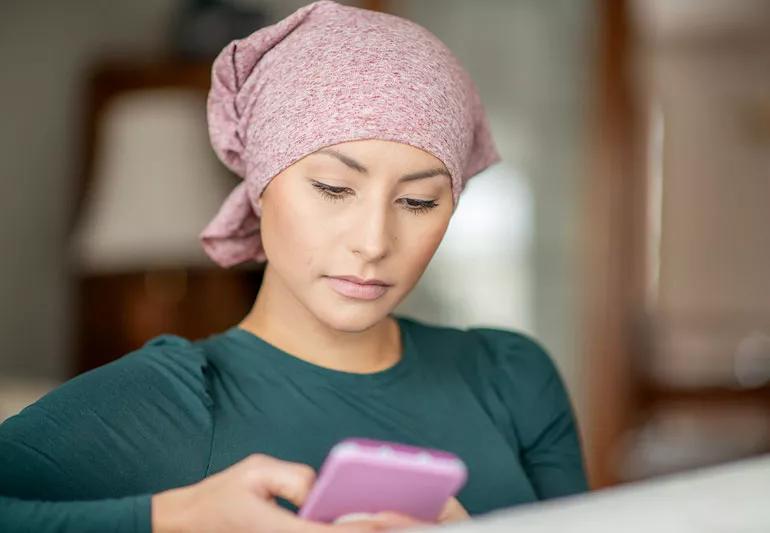Tips on what to say and how to act when someone has cancer

Image content: This image is available to view online.
View image online (https://assets.clevelandclinic.org/transform/242e949e-e2ef-419b-b6d4-fb0e3dd28a9a/talkCancer-1289990387-770x533-1_jpg)
talking with someone sho has cancer
It can be hard to know what to say or how to act when someone you know and love has cancer. Maybe it’s your spouse, a coworker or a neighbor. But no matter what, it’s important to say and do the right things in order to offer support to the person.
Advertisement
Cleveland Clinic is a non-profit academic medical center. Advertising on our site helps support our mission. We do not endorse non-Cleveland Clinic products or services. Policy
Cancer care nurse Josette Snyder, RN, MSN, AOCN, says there is such a thing as “cancer etiquette.”
Cancer etiquette is interacting with someone with cancer in friendly, empathetic and appropriate ways. It’s showing that you acknowledge what they are going through — both physically and emotionally. It’s the awareness that cancer can affect everything in that person’s life.
You should respect, too, that everyone responds differently to events and experiences. People may not respond the way you would — and that’s OK. Accepting this can go a long way in talking with and helping someone you care about who has cancer.
Here’s what to keep in mind.
Advertisement
Advertisement

Sign up for our Health Essentials emails for expert guidance on nutrition, fitness, sleep, skin care and more.
Learn more about our editorial process.
Advertisement
Rely on trusted information from hospital systems, medical nonprofits or your oncologist
How to create your own organizational system
What patients with cancer should ask to make the most out of your appointment
How to help your family member or friend
From a thoughtful note to a special pillow, these items are a win
Testing your well water system annually can help prevent contaminants and bacterial overgrowth
Misconceptions can be worse than reality
The cancer journey doesn’t end after treatment
Type 2 diabetes isn’t inevitable with these dietary changes
Applying a hot or cold compress can help with pain
Pump up your iron intake with foods like tuna, tofu and turkey